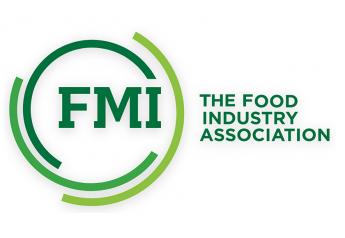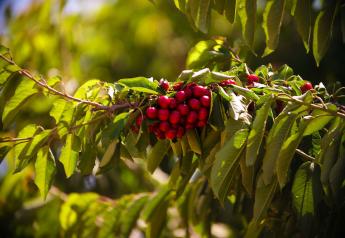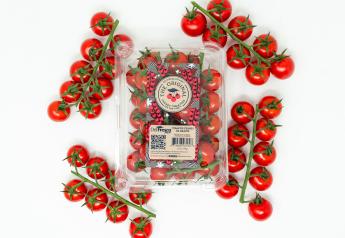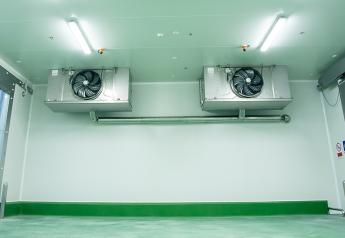Alternative energy, food waste among sustainability focus areas

Produce companies continue to look for ways to make operations more sustainable, from using alternative energy sources to reducing waste to taking on social responsibility initiatives.
Many organizations have extensive information about these efforts on their websites so consumers can easily learn about them.
The Nielsen Co. describes that sort of communication as critical, given the increasing interest from shoppers.
“From a consumer standpoint, companies should ensure that their strategies are both comprehensive — across all aspects of their business and supply chains — as well as observable,” said Crystal Barnes, senior vice president of global responsibility and sustainability for Nielsen. “What are you doing in-store to demonstrate your commitment to sustainability, perhaps in the context of reducing food waste? If you’re a fast-moving consumer goods company, for example, how are you communicating the importance of sustainability through your product packaging?”
Companies have invested in numerous sustainability initiatives and have created ways to track their efforts.
“We’ve developed a Limoneira Sustainability Matrix that categorizes these elements by whether they pertain to resources, nature or people,” said John Chamberlain, director of marketing for the Santa Paula, Calif.-based company. “This enables us to see the interconnectivity between elements and measure to the extent possible impacts and reductions.”
Kori Tuggle-Dinner, vice president of marketing and product development for Salinas, Calif.-based Church Brothers Farms, said the company has been tracking and reporting measurements on sustainability activities since 2014.
“2016 was the first year we had enough data to summarize year-over-year statistics and set benchmark recordings from 2015,” Tuggle-Dinner said. “We now share a report card that summarizes efforts at the field level for seven primary sustainable focus areas. In 2018 we will introduce benchmark measurements at our salad processing plant.”
Waste reduction
Selling produce that does not meet cosmetic retail standards is one way companies are working to reduce waste. Examples include the Eco-Friendly line from Church Bros. and the Misfits line from Eden Prairie, Minn.-based Robinson Fresh.
The industry has also worked to avoid sending more material than necessary to landfills.
“A 10-acre facility on Limoneira property receives over 200 tons a day of organic green waste that would otherwise be transported to landfills,” Chamberlain said. “The end product produced at this facility helps us and other growers to significantly reduce the use of water, herbicides, and fertilizers.”
Wenatchee, Wash.-based Stemilt Growers also creates fertilizer from green waste and looks to extend the life of other products as well.
“We find that reusing is just as important as recycling and have a full-time recycling manager who finds new homes for reused parts and equipment (either at Stemilt, or sells to other companies), as well as manages the recycling of various materials,” said Brianna Shales, communications manager for Stemilt. “We send all of our green waste (culled fruit, pallets, leaves, etc.) to the Stemilt Compost Farm, where it is regenerated into natural fertilizer for our orchards rather than being added to a landfill.”
Especially in California, where drought has been an issue in recent years, companies are also cognizant to avoid wasting water.
“100% of our berries are grown using drip irrigation, which is very water-efficient compared to many other crops,” said Cindy Jewell, vice president of marketing for Watsonville-based California Giant Berry Farms.
Packaging
California Giant plans to keeping working this year on making the packaging of its products more sustainable.
“We continue to look at ways to use less packaging material,” Jewell said. “We have made changes to our tray in each of the last two seasons that have reduced the amount of paper used without compromising the shipping of our product. We also ensure that all of our facilities recycle all paper, damaged packaging, office paper products, etc.”
The company also wants to work with other berry grower-shippers to limit the number of packaging options in an effort to reduce waste.
“We are working to eliminate multiple packaging types for our berries with our commodity board to hopefully change the industry standards ... which will cut down on paper and plastic usage in the future,” Jewell said.
Ideally, another industry-wide area of focus will be the popular clamshell.
“We would like to see the berry industry work together in the future on a recycling waste stream for plastic clamshells. They are all made from PET, which is the most recycled plastic (most water bottles),” Jewell said. “The problem is there is no collection stream for them across the country so consumers are not always able to actually recycle these clamshells since there are issues with removing the labels. We have some solutions for different label materials and/or adhesives but these are very costly at this time.”
Alternative energy
Solar power and other alternative energy sources seem to be growing in use.
Church Brothers debuted its clean power station last year.
California Giant does not use solar energy but is exploring options for its cooling facilities, Jewell said.
Stemilt will be entering the solar arena this year with its new distribution center in Wenatchee.
“We’ve installed several solar panels on the building and will be the largest user of solar energy in Chelan County once the building is in use,” Shales said. “Stemilt also benefits from hydro power across our packing and orchard operations.”
Limoneira has six solar installations, which it expects to benefit the business as well as the environment.
“Limoneira is generating clean energy and capturing savings too,” Chamberlain said. “As energy costs continue to rise, we have locked in our electrical rates. The projects reduce our electrical costs from Southern California Edison by approximately 70%.”
The company also is working with Tesla on another energy endeavor.
“Tesla storage systems provide us with the ability to reduce our energy costs by charging the battery during off-peak hours and dispatching the battery during peak hours,” Chamberlain said. “The system measures energy pricing arbitrage value using utility tariff data and autonomously controls the battery to maximize value.”
Social responsibility
Along with taking care of the environment, companies also want to take care of their people.
One example was a program mentioned by Stemilt.
“This was the second year of operation for the Stemilt Family Clinic, a clinic at one of our facilities that offers employees and their dependents free primary health care and prescription filling,” Shales said. “It’s an amazing benefit of working here and has helped immensely in touting preventative/well care. We are looking to expand the clinic to have mobile sites in order to offer the benefit to employees of our orchards.”







